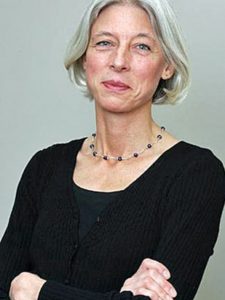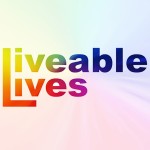Uncategorized
Upcoming Roundtable: ‘Planning Ahead: LGBT Issues at the End of Life’
April 20, 2017
by Lewis Brennen
Planning Ahead: LGBT Issues at the End of Life
The University’s Law School and Pulse LGBT+ Staff Network are pleased to invite you to a roundtable discussion on LGBT issues at the end of life taking place on Wednesday 26 April from 12:00 – 14:00, Room 1007, Building 67, Highfield Campus.
As the UK population ages, the availability and delivery of effective palliative care is becoming more important than ever, but what challenges do LGBT people face in accessing appropriate palliative care, and what are the legal and moral duties of healthcare providers to ensure that all patients at the end of life are able to die with autonomy and dignity?
Following the release of Compassion in Dying’s booklet supporting LGBT people to plan ahead to ensure they receive care that’s right for them, and a revealing new study by Marie Curie, this informal lunchtime discussion will explore the unique experiences of the ageing LGBT community, the law on end-of-life care, and the social and legal issues that these needs present.
This lunchtime conversation will open with a short presentation from Professor Hazel Biggs, Katie Hunt and Matthew Watkins (Southampton Law School), followed by a roundtable discussion in which there will be an exchange of questions, answers and concerns. Resources for understanding LGBT needs in healthcare contexts and facilitating end-of-life conversations will be available.
Attendees should bring a lunch with them, but tea, coffee and cake will be provided. The organisers look forward to seeing you on the day!
For more information, including how to book your ticket, visit https://www.eventbrite.co.uk/e/planning-ahead-lgbt-issues-at-the-end-of-life-tickets-33851015298. If you have any queries, please contact Professor Hazel Biggs: H.Biggs@southampton.ac.uk.
Upcoming Seminar: ‘Queering Marxist [Trans]Feminism: Queer and Trans Social Reproduction’
April 20, 2017
by Lewis Brennen
Marxism in Culture Seminar
Friday, 28 April 2017
17:30-19:30
Wolfson Room, Institute of Historical Research
Senate House, University of London
Nat Raha (University of Sussex)
Queering Marxist [Trans]Feminism: Queer and Trans Social Reproduction
Despite the recent resurgence of social reproduction theory and Marxist feminist political praxis, the social reproduction of lesbian, gay, bisexual, transgender and queer (LGBTQ) lives remains under-theorised. While heterosexuality as a form of work has long since been considered as part of Marxist feminism’s analysis, the consideration of queer sexualities, and the reproduction of life and labour-power outside and beyond of the cis-, heteronormative nuclear family, have been sidelined in the canon of Marxist Feminism. Bridging the theoretical work of queer Marxism, Black feminism and trans studies, and the political praxis of LGBTQ groups Street Transvestite Action Revolutionaries and Wages Due Lesbians, this paper will address the expanded definition of social reproduction necessary to understand the social reproduction of LGBTQ lives.
The paper will argue that the forms of caring labour that enable LGBTQ lives take place in spaces beyond the domestic sphere and within familial forms that exceed the nuclear family; and moreover that such labour includes the reproduction of genders, desires and bodies anchored in non-normativity – work that is often naturalised and not considered as labour. Furthermore, the continued failure of the capitalist socius to support the lives of poor trans women and trans femmes of colour and/or sex workers raises questions of how the politics of queer and trans liberalism(s) devalue and compound the conditions of queer and trans social reproduction under a racialised and gendered division of labour.
Nat Raha is a poet and trans / queer activist, living in Edinburgh, Scotland. She is a PhD candidate at the University of Sussex, working on a thesis titled ‘Queer Capital: Marxism in queer theory and post-1950 poetics’. Her poetry includes two collections: countersonnets (Contraband Books, 2013), and Octet (Veer Books, 2010); and numerous pamphlets including ‘£/€xtinctions’ (Sociopathetic Distro, 2017), ‘[of sirens / body & faultlines]’ (Veer Books, 2015), and ‘mute exterior intimate’ (Oystercatcher Press, 2013). She’s performed and published her work internationally. Nat currently works as a Research Support Assistant for ‘Cruising the 1970s: Unearthing Pre-HIV/AIDS Queer Sexual Cultures’ at the Edinburgh College of Art; and her essay ‘Transfeminine Brokenness, Radical Transfeminism’ is due for publication in the South Atlantic Quarterly this spring.
Free and open to all
If you have any queries please contact Chrysi Papaioannou (papaioannou.chrysi@gmail.com).
Website: https://www.history.ac.uk/events/seminar/marxism-culture
Facebook: https://www.facebook.com/groups/176590486339/
Twitter: #MICseminar
Some earlier seminars are now available as Podcasts.
MIC Seminar organisers: Matthew Beaumont, Dave Beech, Alan Bradshaw, Warren Carter, Luisa Lorenza Corna, Gail Day, Steve Edwards, Larne Abse Gogarty, Esther Leslie, David Mabb, Antigoni Memou, Chrysi Papaioannou, Nina Power, Dominic Rahtz, Pete Smith, Peter Thomas, Alberto Toscano & Marina Vishmidt.
6th Southampton Stonewall Lecture: Interview with Professor Dagmar Herzog
February 28, 2017
by Lewis Brennen
On Thursday 9th February Professor Dagmar Herzog came to the University of Southampton to give the 6th Southampton Stonewall Lecture. The lecture, entitled ‘Love and Perversion – The Modern History of Homophobia’ was part of a series at the University of Southampton focused on communicating the latest LGBT history research to a wider public audience.
Professor Herzog is a distinguished professor of history and the Daniel Rose Faculty scholar at the Graduate Center, City University of New York. Her work on the histories of sexuality, gender, religion, Jewish-Christian relations and the Holocaust informed her fascinating lecture.
We interviewed Professor Herzog before the lecture to find out more about her career and what led to her interest in the history of sexuality in the twentieth century.
What are the key ideas you want to put across to the audience today?
The story I want to tell in my Stonewall lecture has to do with the overwhelming power of homophobia in the post-World War II United States. This is the world of the cold war and an anti-communist climate in which the psychiatrists and psychoanalysts were enormously influential in giving legitimacy to ugly hostility towards homosexuality. The story I want to tell has to do with how incoherent and absurd these ideas were, and yet how powerful they were and how much damage they did, but also how the same ideas were refuted and dismantled and how ultimately brilliance and generosity triumphed over cruel silliness.
So that’s the arc of the story – the rise of the homophobic consensus and its destruction, but I’d also like to introduce a very important character, Robert Stoller, who was crucial in the 1970s in using psychoanalysis to rebut homophobic ideas. I want to give an example of how one can have a queer eye for heterosexuality, because ultimately that was the strategy Stoller used in order to dismantle homophobia and to make it look ridiculous. I also want to communicate how closely linked gay rights and women’s rights are. I’m interested in how the content of homophobia changes: the excuses people make for why they have to be prejudiced change over time, which shows you that it’s really about maintaining power.
In your latest book (Cold War Freud) you write about the ‘durability of homophobia’. Why has homophobia been so enduring in the modern age?
It’s a great question. It would be nice not to have to ask it anymore!
Many thoughtful people have given different answers over time.
One possible answer is the one Freud himself gave in Civilisation and its Discontents, which is that heterosexuality doesn’t always make people as happy as they want to be – something in the nature of sex and intimate relationships is always somewhat disappointing at some times. Not everyone feels totally comfortable inhabiting their gender. There is something special about sex that makes it very easy to manipulate people politically around it, so it makes people vulnerable in their intimate relationships and in their relationships with themselves that’s intense for people. It takes effort to be sovereign and generous towards difference and not fall into getting excited about curbing other people’s freedoms.
You started as a historian of religion in 19th century Germany. How did your interest in the history of sexuality begin and develop? Do you see yourself mainly as a historian of sexuality or even LGBT history?
It’s true that I started writing on the rise of a religious right in the 1840s and what was interesting to me was – writing during the years of the rise of Ronald Reagan in the US, Margaret Thatcher in the UK and Helmut Kohl in Germany – that I noticed that liberals were very disconcerted by the rise of a sexually conservative religious Right that they hadn’t expected and didn’t know how to respond to.
I was interested that the religious disputes and fights about Christian-Jewish relations that I was analysing in the 1840s were actually carried out via a lot of sexual innuendo – so it was the sources that led me to the topic. I was interested in the fact that this religious Right used sexual innuendo to make fun of liberals and disconcert them, and it had a variety of consequences for how liberal Christians understood Jewish rights.
I was interested in this nexus of Christianity and the difficulties it has with Judaism, seeing this endless rivalry, always frustrated that the Jews don’t come over to the Christian side and I was interested in the conflicted feeling around sexuality – themes that have stayed with me all along, but which came out of the sources.
Subsequently I met a lovely man named Theodore Weiss, an Auschwitz survivor, who approached me at a conference in 1993 and said he wanted me to teach history of the Holocaust at Michigan State University and I said ‘but I write on the nineteenth century’ and he retorted ‘I’ve researched you – you can do this.’ (I am confident that he has said this to dozens of scholars over the years! He has been extraordinarily successful in mobilizing the field.) And indeed, with his help, it turned out he was right. Thanks to him, I become a twentieth-century historian. I then became very involved in Holocaust education and to this day I’m very active in the work of the Holocaust Educational Foundation and just taught a week-long course at the United States Holocaust Memorial Museum.
I ended up writing my second book on the stages of memory-making in the aftermath of the Holocaust and what lessons people drew from that cataclysm and astonishingly – I did not go looking for it – the sources were filled with sexuality.
Strikingly, Christian conservatives in the immediate aftermath of the Third Reich argued that the way to get over this horrible past of mass murder was to clean up and restore family values and to clean up the culture sexually. Then a generation of their children – many of them members of the New Left – said that no, we needed to liberate sexuality in order to avoid another Auschwitz. They thought the Third Reich had been totally sexually repressive even though that wasn’t true. In truth, the Third Reich had combined incitement to heterosexual activity with lethal homophobia with brutality towards Jews and Roma and many other peoples, so actually there had been a combination of taboo- breaking both in the realm of sexuality and in the realm of violence.
Because the Third Reich itself was complicated, it was easy to draw contradictory lessons from it, but a lot of the intergenerational conflicts after 1945 were played out in the realm of sexuality. So that’s where my long standing obsessions with ‘what is the emotional appeal of right wing politics and fascism’, ‘how do homo- and heterosexuality belong together and how differently in each time period’ and ‘why is it that fights about nonsexual matters get carried out in the realm of sex and vice versa’ – those things all come from these research experiences. It’s not me – it’s the sources!
I look at these things and think “6 million people have just been murdered and you’re talking about cleaning up family values? It’s offensive! This cannot be what you’re talking about.” But indeed it was.
One of your major works is Sexuality after Fascism (2005) about 20th century Germany. How has this changed the way we think about the history of sexuality/ homosexuality in Europe?
One of the questions I always ask myself is how can you tell a fascism when you see it? For the 1920s, 30s and 40s whether you’re looking at Italy or Spain or Nazi Germany or Vichy France there’s hostility to homosexuality – predominantly male homosexuality – for some reason that’s more upsetting than lesbianism to the powers-that-be. There’s always also control of abortion rights, which is a way of controlling female sexuality. It’s different in each of the different fascisms but you can always see that double phenomenon.
Thinking now about right-wing movements in the United States in the post-war period, again you have anti-abortion, anti-homosexuality. Think about Western Europe now: for a while Western Europe was presenting itself as very progressive about sexuality, female sexuality and LGBT rights, trying to tell post-communist Eastern Europe that it needed to get with that liberal programme. Now we have massive movements also within Western Europe arguing that they don’t want to have “gender theory,” that they don’t want to have (what they call) “premature sexualisation of children” (via sex education) in classrooms; there is a move against gay marriage and there is a move against abortion rights again. It’s strange and upsetting to me that these are the facts, but thinking about the premier example of fascism helped me see this phenomenon is everywhere.
Another truth about the Nazis is that they were very much encouraging of sexual pleasure: they really incited sexual pleasure for non-disabled, heterosexual “Aryans”, who were the majority of the population. There’s this huge encouragement to pleasure on the one hand – pre-marital, extra-marital, marital – everything, and that’s the flipside of the coin of a lethal homophobia. The intensified prosecution of homosexual men, putting them in concentration camps, castration, conversion attempts, this grotesque behaviour is the flipside of all that encouragement.
So one other trait of many right-wing movements is that they also promise pleasure, that they are not just repressive across the board. One can look at Evangelical Protestantism of a certain conservative bent in the United States and see that it’s actually encouraging of fabulous marital sex, as long as one supports the anti-homosexuality, anti-abortion agenda. There’s always this idea that ‘we will offer you something better’. Right wing movements don’t just market repression, they market the promise that some group of people will get to feel superior and get to break the rules and have more fun.
You are a very active researcher and writer! What are your plans for future research?
The project I’m working on now has to do with the history of disability. I come to it both from history of religion, history of the Holocaust and from history of sexuality, because before the mass murder of European Jewry there was mass murder of the disabled.
In no other nation, in no other time and place has this happened that a nation killed its own disabled en masse. It was the “trial run” for the Holocaust. You can think of it as the prologue or the first chapter, but literally the same hundred individuals that got their practice and their training committing the mass murder of the disabled are the ones who go to Poland and start the Operation Reinhardt camps of Sobibór, Bełżec and Treblinka. Those camps used the same technology: killing by carbon monoxide. This was before they discovered Zyklon B in Auschwitz. A quarter of the Holocaust is done by carbon monoxide and is modelled on the earlier killing of the disabled. It’s obviously the same attitude of “lives unworthy of life.”
One of my major missions in Holocaust studies is to integrate the murder of the disabled more strongly into the history of the Holocaust, because it’s also a precursor in terms of emotionally preparing people for mass murder, both bystanders and the actual perpetrators.
I became very interested in how difficult it was to develop a disability rights movement in the aftermath of the slaughter – people were crushed. There was shame that was attached to the families of people who’d been killed and there was strong popular identification with the doctors who were the perpetrators. It is deeply upsetting, that in many ways hostility to the disabled was made stronger by the mass murders. It took almost four decades to really get a feisty counter-movement going.
It took a lot of effort for the mass murder of Jews to become recognised as something that we now think of as one of the defining events of the twentieth century. That took effort against a lot of disinterest in centring that event. However this issue- the mass murder of the disabled – has taken even longer to become central to our discussions because of the persistence of hostility to the disabled.
I’m really interested in talking about the disability rights movement that emerges finally and how it eventually does learn how to find ways to set terms of discussion politically and culturally, but just as that’s happening – we’re in the twenty-first century – disability rights are getting turned against women’s rights to abortion. It’s the new wedge-issue for anti-abortion campaigners. They figured out a clever way to put leftists and feminists on the back foot by arguing that it’s awful to abort on the grounds of disability. They’re using the idea that abortion is being used “eugenically” in order to make people feel guilty and confused. What has happened is a lot of disability rights activists also oppose abortion on the grounds of disability and so there’s a confusion of categories between Left and Right.
It’s becoming increasingly difficult to make an argument that says : this has to be a woman’s or a couple’s choice to take this on. It’s very difficult in every country in Europe at the moment – in 2009 in Germany, the parliamentary inquiry in the UK into abortion and disability in 2013, Spain in 2014, Hungary in 2012, Poland in 2016 – it shows you that it’s strategic. For many people it is sincere and deeply felt, but clearly it is also a moral wedge that divides people.
You may wonder what this has to do with LGBT, but one of the things I’m very interested in is that it’s actually LGBT activism that has provided the framework for disability rights, in at least 3 ways: the challenge to normative bodies; the challenge to what counts as a family form – disability “queers” families and calls attention to how interdependent we all are and brings into view the complexities for relationships that are needed for lives to flourish and be joyful; and LGBT’s insistence that pleasure and relationality are human rights has been a very important precursor to disability rights arguments as well. So I’m really interested in “queering” disability and showing what close links there are between those two movements.
Southampton Stonewall Lecture, Thursday 9 February: Professor Dagmar Herzog
January 26, 2017
by John Cornwall
 The 2017 Stonewall Lecture will take place in Lecture Theatre A (Avenue Campus) on Thursday 9 February 6pm. All welcome but please register with Tracy Storey: t.p.storey@soton.ac.uk. The 2017 speaker is Professor Dagmar Herzog (CUNY), one of the leading historians of sexuality and homophobia. She will be speaking about:
The 2017 Stonewall Lecture will take place in Lecture Theatre A (Avenue Campus) on Thursday 9 February 6pm. All welcome but please register with Tracy Storey: t.p.storey@soton.ac.uk. The 2017 speaker is Professor Dagmar Herzog (CUNY), one of the leading historians of sexuality and homophobia. She will be speaking about:
LOVE AND PERVERSION: THE MODERN HISTORY OF HOMOPHOBIA.
Why has same-sex desire often been associated with weak egos, strong drives, and narcissistic character disorders?
Psychoanalyst Sigmund Freud was never hostile to homosexuality. But post-Freudian analysts clung fiercely to a homophobic consensus, even if their reasoning changed under pressure of competing with sexuality researchers like Alfred Kinsey. This lecture will explain how homophobia and psychoanalysis evolved in tandem in the course of the sexual revolution of the 20th century. It explores how clever theory and activism finally got homosexuality removed from the official list of psychiatric illnesses – while reconceiving the connections between love and perversion for everyone.
The Southampton Stonewall Lecture is devoted to the history of homosexuality or LGBT history and is part of an annual lecture series organised by the Faculty of Humanities at the University of Southampton. The purpose of the lecture is to educate the present about the past; to showcase thinking and research about LGBT history; and to enhance the University of Southampton’s remit of promoting sexual diversity in the regional community.
Stonewall Lecture this Thursday – Register NOW to ensure a place!
February 15, 2016
by Laurence Georgin
Make sure you register NOW to get a place!
Lesbian Life Stories: Stuck in the Past? On the Archives of Lesbian Oral Testimonies (ALOT)
 Thursday 18 February 2016 – 6:00pm
Thursday 18 February 2016 – 6:00pm
The 2016 Southampton Stonewall Lecture will be given this year by Professor Elise Chenier, Professor of History at Simon Fraser University in British Columbia. All welcome.
This 2016 Stonewall lecture from a leading historian of sexuality and gender will explore and explain lesbian experience as captured in three decades of oral histories. In the 1990s the discipline of history, once a leader in LGBT studies, was overtaken by literary and cultural studies, and ‘life experience’ fell out of academic fashion. Professor Chenier will show that “lesbian” remains a useful category of analysis and that life stories continue to have a transformative effect, playing a key role in constructing the LGBT community.
This lecture will be chaired by Professor Mark Cornwall, Professor of Modern Europe History at University of Southampton.
Speaker information
Elise Chenier is Professor of History at Simon Fraser University, British Columbia, and an expert in the history of sexuality and oral history. Her first book, Strangers In Our Midst: Sexual Deviancy in Postwar Ontario (Toronto, 2008) was awarded an honourable mention for the Canadian Law & Society Book Prize. She has published widely in journals such as the Radical History Review, the Journal of Women’s History, and Left History, and is the founder of the Archives of Lesbian Oral Testimony (alotarchives.org), an open-access digital archives, and interracialintimacies.org, a digital visualization of the research process and learning tool. She is currently writing a book on ‘Same Sex Marriage in the USA, 1950-1987’.
Event Information
Venue
Avenue Campus
University of Southampton
SO17 1BF
Register
This event is free however you must register to attend and receive joining instructions. To register for a place please visit the Online Store website.
The inaugural Stonewall Lecture was given in March 2012 by Angela Mason CBE, former executive director of the Stonewall charity. Her lecture, drawing a large audience, was entitled: ‘Twenty-Five Years On: The Fight for LGBT Rights in the UK’. The 2013 lecture ‘Gay Culture in Postwar New York: Community Creation and Conflict‘ was given by Professor George Chauncey (Yale), 2014 was provided by Professor Laura Doan speaking about ‘On the Entanglements of Queer Memory and History: The case of Alan Turing‘ and last year we welcomed Professor Richard B Parkinson from the University of Oxford with his lecture entitled ‘Glimpses of a Gay World History: From Ancient Egypt to the Modern Museum‘. You will find recordings and interviews of these lectures by following the links above.
 If you wish to attend this very popular lecture please register by 14 February for a place via the Online Store. Ensure you book soon to avoid disappointment!
If you wish to attend this very popular lecture please register by 14 February for a place via the Online Store. Ensure you book soon to avoid disappointment!
There will be a charity collection on behalf of Stonewall at the end of the lecture.
What makes life ‘liveable’ for lesbian, gay, bisexual, trans and queer (LGBTQ) people in Southampton?
January 23, 2015
by Carla Barrett
 Liveable Lives project workshop (Southampton)
Liveable Lives project workshop (Southampton)
Sat 21st February, 12 noon to 3pm
Central Hall, Evans Street, Southampton, S014 1ZA
What makes life ‘liveable’ for lesbian, gay, bisexual, trans and queer (LGBTQ) people? And what makes life not liveable? The Liveable Lives project, based at the University of Brighton, wants to hear from Southampton! Places outside of big cities are often neglected in LGBTQ research in the UK, making this a rare opportunity for Southampton’s LGBTQ people to take part in an international project.
Southampton’s LGBTQ communities are invited to join us on Saturday 21st February, for an interactive project workshop that will explore what makes our lives ‘liveable’ rather than just ‘bearable’, so that life feels like living, and not just surviving. This ground-breaking research will gather stories and experiences of everyday life as an LGBTQ person through activities like drawing maps of our lives; making collages to visualise how we live our lives; and expressing ideas through writing. There will also be the opportunity to join in discussion groups with other LGBTQ people, and to have one-to-one interviews with researchers. Attendees who would like to stay involved in the project after the workshop will be able to take part through their mobile phones, using a quick and easy web-based app!
The workshop will be held at Central Hall, Evans Street, Southampton, SO14 1ZA on Saturday 21st February. LGBTQ people can drop in any time from 12 noon to 3pm, and come and go as suits them throughout the day. Food and drinks will be provided, and the venue is wheelchair accessible. Please bring along partners, friends, and share the invite with your networks.
Those wishing to take part or find out more about the project can contact us via Facebook (www.facebook.com/groups/liveablelives/) or Twitter (@liveablelives), or by sending us an email (liveablelives@brighton.ac.uk).
If you are interested in taking part, you can sign up here: http://goo.gl/forms/rrkY4OdCVK or join the Facebook event here: http://on.fb.me/1GpRu4U. This will help us plan for the numbers who wish to attend and let us contact you with further details about the event.
Welcome to the LGBT Research Community
July 18, 2013
by Laurence Georgin
The LGBT Research Community website is the hub for LGBT research, teaching and enterprise at the University of Southampton.
We want to engage with researchers from across the University and we invite you to get in touch with if you want to share your LGBT-related work with the wider University community.

